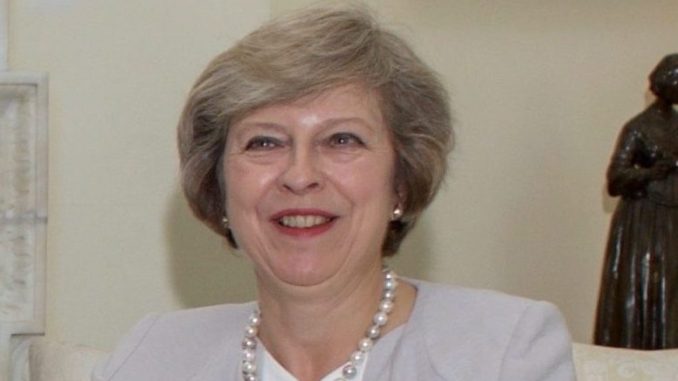
Theresa May leaves her position as UK Prime Minister today, with her party in a shambles and the country headed into a potentially disastrous unknown. The best comment I’ve heard about it came from a comment on a Facebook thread: “Most people think we’ve lost a Prime Minister. We’ve really lost a scapegoat.”
I appreciated that comment because, in many fundamental ways, May hasn’t been Prime Minister for months. She has been a lame duck functionary trying to stay in position long enough to drive a key piece of legislation through a fractured Parliament, only to see the legislation continually fail.
With “Hard Brexit” and “Re-vote” factions both expecting that they would get their way in the end, it was impossible for her to muster the votes needed for a “Soft Brexit” – a transitional action which would have fulfilled her obligation to her voters (Brexit) while leaving conditions in place for a simple retreat back to the EU if the results were deemed catastrophic by Britons.
May attempted to walk a tightrope and failed. She earned the friendship and respect of other EU leaders like Angela Merkel and Emmanuel Macron, but little else.
The new Brexit Party was able to label May as the enemy, and has successfully sapped much of the support for the traditional Conservatives. This has happened at a time when the Labour party is dealing with internal issues stemming from criminal and racist activity being exposed. Under normal conditions, the Conservatives would be riding high in the polls; this is not a normal situation.
Instead, the recent by-election for Petersborough, a traditionally split district for Conservative and Labour, was won for Labour by a thin margin over the Brexit party, with the Conservatives falling to third place. A strong argument can be made that the Conservatives were the spoiler in the race, were it examined under the flawed American “Binary option” microscope. The poor showing is, in part, because of the attacks on May which resonated with the voters.
As May steps down, there is a power vacuum that will be filled. The next Prime Minister will be chosen from a fairly large field of candidates, and one of the front-runners is Boris Johnson, an advocate for a Hard Brexit.
President Trump’s recent trip to the UK put Johnson in a difficult position. A successful Hard Brexit is deeply reliant on a compliant US to give it heavily preferential trade agreements, and because of that the Hard Brexit people must be as deferential to Trump as possible; Trump is deeply unpopular throughout the UK, however, and directly associating with him would have potentially scuttled Johnson’s chances to become Prime Minister. In the end, Johnson decided against the photo opportunity with Trump, a man who has a history of avenging imagined slights by those he feels are inferior… and Trump’s view of inferiority includes anyone who is deferential to him.
Add to that the desire for many Scots to break away from the UK in the event of a successful Brexit, and the internal frictions of an Ireland divided by a guarded border, and some of the issues awaiting the UK are evident.
The next PM, whether Johnson or someone else, will chart their own path, but they will find that the options available to them are likely not to be nearly so rosy as the pictures they have presented to the UK people.

1 Trackback / Pingback
Comments are closed.